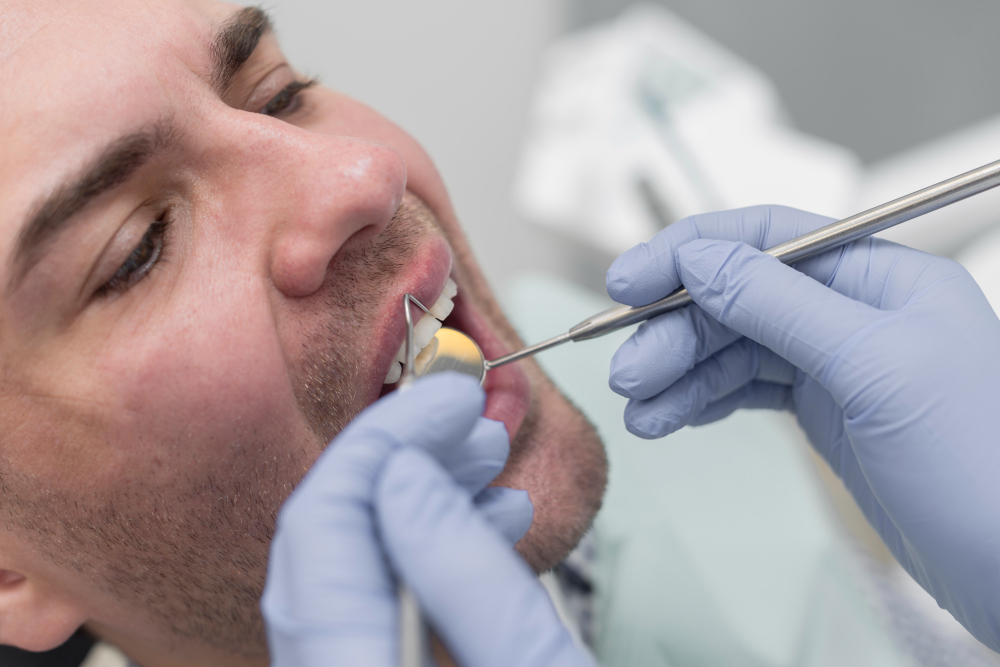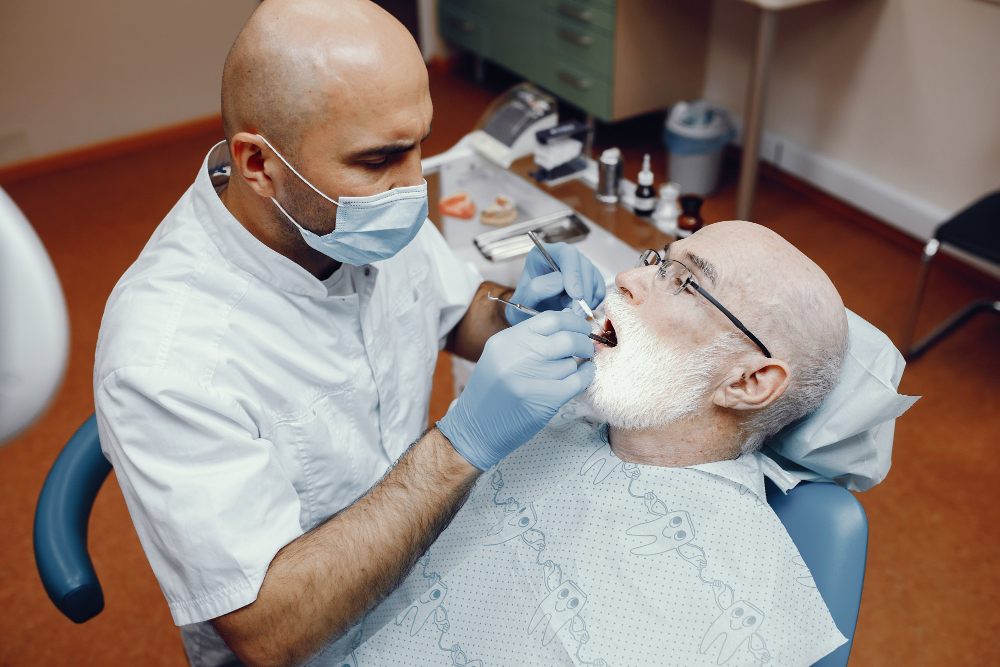At the International Institute of Implantology and Advanced Aesthetics, we are committed to providing cutting-edge education for dentists who aim to excel in the field of dental implantology. One of the most innovative materials that has gained attention in recent years is the zirconia implant. Known for its aesthetic advantages and biocompatibility, zirconia has become a popular alternative to traditional titanium implants. In this post, we’ll explore the pros and cons of zirconia implants, helping you understand when and how to incorporate them into your practice for optimal patient outcomes.
What Is a zirconia implant?
A zirconia implant is a type of dental implant made from zirconium oxide, a ceramic material known for its exceptional biocompatibility and aesthetic appeal. Unlike traditional titanium implants, which are metallic, zirconia implants offer a tooth-colored solution that blends seamlessly with natural teeth. This makes them an excellent choice for patients seeking a more aesthetically pleasing result, particularly in visible areas of the mouth like the front teeth.
Zirconia implants are typically used in cases where patients have metal sensitivities or when aesthetics is a primary concern. The material’s smooth surface reduces the likelihood of bacterial accumulation, making it a favorable choice for overall oral health. While zirconia has been known for its strength and longevity, it is important to note that it can be more fragile than titanium, making careful placement essential. As you advance in your practice, understanding the unique properties of zirconia will allow you to make informed decisions for your patients.
Key advantages of zirconia implants
Zirconia implants offer several advantages, particularly when it comes to aesthetics and patient comfort, making them a valuable option for certain clinical situations. Here’s a closer look at why zirconia implants are gaining popularity in dental implantology:
Aesthetic Benefits
One of the primary advantages of zirconia implants is their natural appearance. Zirconia’s tooth-colored material closely resembles the look of natural teeth, making it an ideal choice for patients seeking a more aesthetic solution, particularly in the front teeth. Titanium implants, while strong, are metallic and can sometimes cause a grayish tint near the gums, especially in patients with thin gum tissue. Zirconia implants, on the other hand, maintain a more discreet appearance, contributing to an overall more harmonious smile.
Biocompatibility
Zirconia is known for its superior biocompatibility. This means that the material is highly unlikely to trigger allergic reactions or irritate the surrounding tissues. For patients with known sensitivities to metals, zirconia offers a metal-free alternative that reduces the risk of adverse reactions, making it a safer choice for many individuals. The material is also well-suited for patients who prefer a more holistic or non-metallic approach to dental care.
Strength and durability
While zirconia is often considered more fragile than titanium, technological advancements have significantly improved its strength. Modern zirconia implants are designed to withstand the stresses and forces experienced in the mouth, especially when placed in the anterior region. In fact, zirconia implants are highly resistant to corrosion and staining, which ensures they maintain their aesthetic quality over time.
Corrosion resistance
Unlike titanium, which can corrode over time, zirconia implants are inherently resistant to corrosion. This means that patients who choose zirconia implants don’t have to worry about deterioration or the loss of strength that can occur with metal implants, particularly in patients with higher acidity in their mouths. This quality ensures the long-term integrity and aesthetic appearance of the implant.
Disadvantages and limitations of zirconia implants
While zirconia implants offer distinct benefits, they are not without their limitations. Understanding these drawbacks is essential for making the right decisions in clinical practice and ensuring optimal outcomes for patients.
Fragility and risk of fractures
One of the most notable disadvantages of zirconia implants is their relative fragility compared to titanium. Although zirconia is strong, it can be more prone to fracture under heavy forces, especially in the posterior region where biting pressure is greater. While advancements in manufacturing have improved the durability of zirconia, it still doesn’t match titanium in terms of overall toughness. This makes careful placement crucial, as it may not be suitable for all patients, particularly those with high bite forces.
Limited long-term data
Zirconia implants have only been in use for a few decades, whereas titanium implants have been the gold standard for over 50 years. The lack of long-term data on zirconia implants means that there is still some uncertainty about their performance and durability over the long run. While current studies suggest they perform well, there isn’t the same extensive clinical track record as with titanium, making some practitioners hesitant to rely on zirconia for all cases.
Placement challenges
Zirconia implants can be more challenging to place than titanium implants. Their hardness and brittleness require specialized tools and techniques for optimal placement. Improper handling during insertion can lead to fractures or a less-than-ideal fit, compromising the success of the implant. Dentists must ensure they have the necessary expertise and equipment to place zirconia implants correctly, which may require additional training and practice.

Higher cost
Zirconia implants are generally more expensive than titanium alternatives. This increased cost can be a significant consideration for both dentists and patients, particularly when patients are choosing between different implant options. The cost of zirconia can impact decision-making, especially in cases where budget constraints are a concern.
Practical Considerations for Dentists: When to Choose Zirconia Implants
Here are several considerations to keep in mind when considering a zirconia implant:
Patient profile
Zirconia implants are ideal for patients who prioritize aesthetics, especially those requiring implants in visible areas such as the front teeth. The natural tooth-like appearance of zirconia makes it the preferred choice for individuals seeking a more discreet, metal-free solution.
Clinical situations
These implants are also an excellent option for patients with metal allergies or sensitivities. Zirconia’s biocompatibility and metal-free composition significantly reduce the risk of allergic reactions, making it a safer choice for those who cannot tolerate titanium. Furthermore, zirconia implants are preferred in cases where metal visibility is a concern, as they maintain a more natural look.
Placement recommendations
While zirconia implants offer several benefits, they are best suited for areas with less biting pressure, such as the anterior teeth. Their fragility compared to titanium means that they should be used cautiously in posterior regions, where the risk of fractures due to high bite forces is greater.
Recommendations for daily practice
It’s crucial to have the right tools and experience when placing zirconia implants. The material’s specific properties require specialized handling during placement. Always discuss with patients their expectations and inform them of the potential risks involved, ensuring they are fully aware of the advantages and limitations of choosing a zirconia implant.
Make informed decisions with zirconia implants in your practice
Choosing between zirconia and titanium implants depends on a variety of factors, including patient preferences, clinical conditions, and material properties. While zirconia implants offer clear aesthetic benefits and biocompatibility, they also come with challenges like fragility and limited long-term data.
By understanding both the advantages and disadvantages, dental professionals can make informed decisions and incorporate zirconia implants into their practice effectively. If you’re looking to further your expertise in implantology, the International Institute of Implantology and Advanced Aesthetics offers advanced courses tailored to help you stay ahead in your field.



